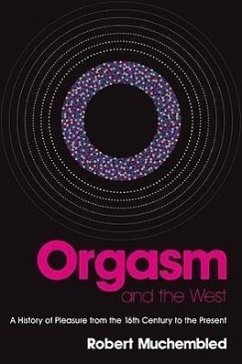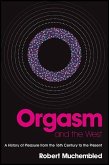Does the orgasm have a history? An almost incommunicable individual emotion yet also a cultural reality, the orgasm is part of our collective experience and also something separate from it. Its history is that of the hidden body, of forbidden desires, of flesh constrained by taboos and morality. In this major new book Robert Muchembled uncovers a fascinating history of sexual pleasure and the repression of pleasure that lies at the heart of Western civilization. Contrary to Foucault, he argues that a powerful repression of the carnal appetites was established at the very heart of our civilization around the middle of the sixteenth century, and that it only really lost ground in the 1960s. Producing a fundamental tension between the libido of each individual and collective ideals, it was a process that constantly promoted a powerful labour of sublimation throughout this long period, under the successive cultural covers of religion, philosophy and the laws of the capitalist market. The coercive system laid down in the seventeenth century formed the basis for alternate cycles of liberation and constraint, whose fluctuations were fundamental to the general dynamism of the West because they created the need to compensate for the mental disequilibrium they caused. Today, argues Muchembled, the United States remains deeply marked by the old repressive system, while in Europe this system has been shaken by the emergence of new forms of hedonism. Anchored in the dogma of shameful sensuality and the concealed body, the repressive system has been disrupted by the sudden irruption of the female orgasm onto the public stage. Whereas the United States continues to cultivate a nostalgia for the familial and sexual archetype bequeathed by the repressive tradition, Europe finds itself in uncharted territory facing new questions about sexuality, pleasure and the good life.
Hinweis: Dieser Artikel kann nur an eine deutsche Lieferadresse ausgeliefert werden.
Hinweis: Dieser Artikel kann nur an eine deutsche Lieferadresse ausgeliefert werden.








